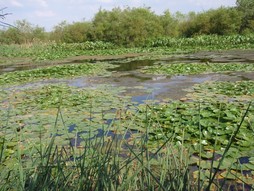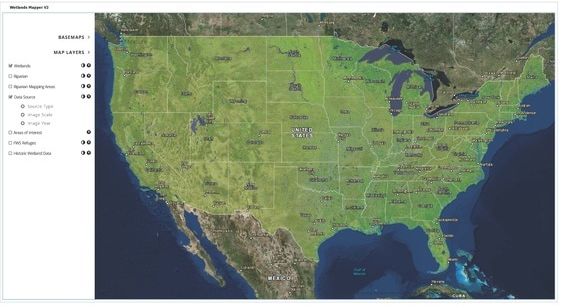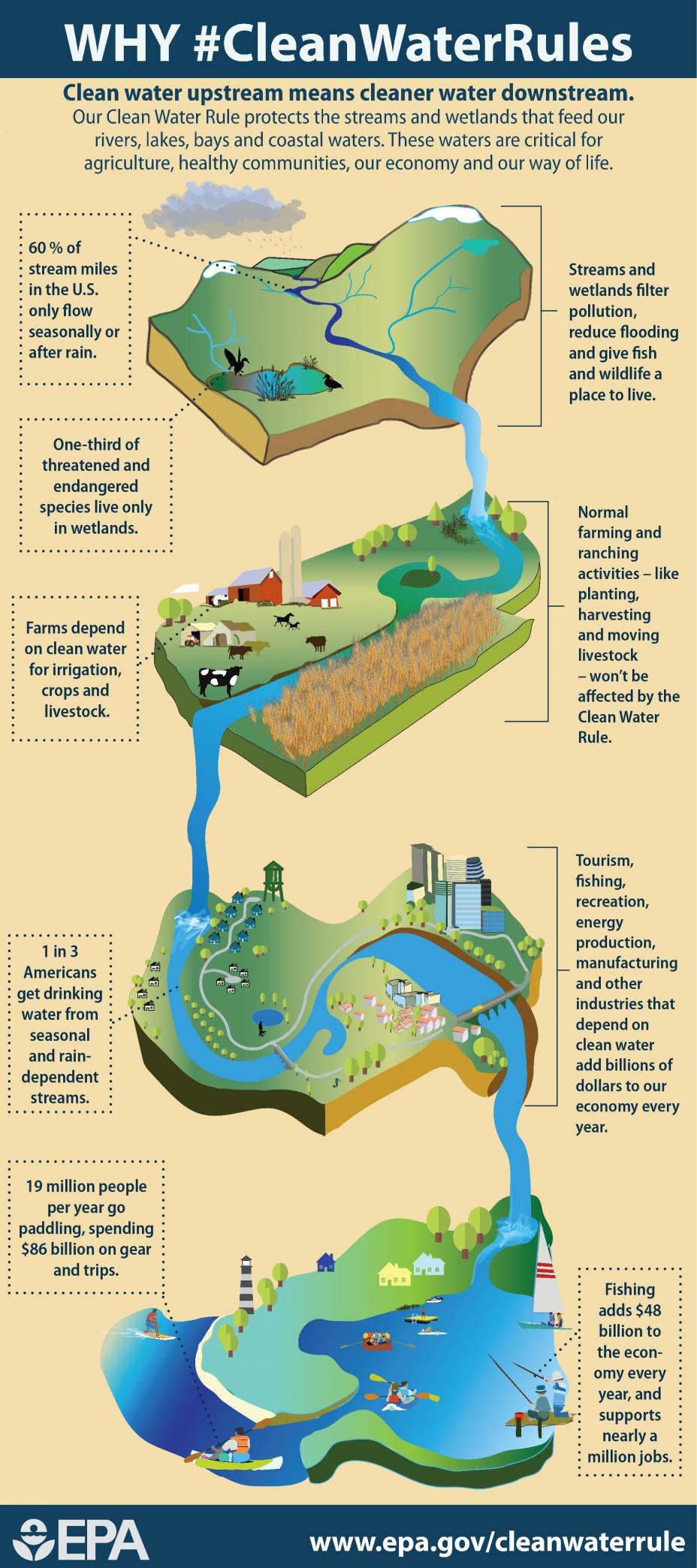 Wetlands provide a multitude of ecological, economic and social benefits. They provide habitat for fish, wildlife and plants - many of which have a commercial or recreational value - recharge groundwater, reduce flooding, provide clean drinking water, regulate our climate, offer food and fiber, and support cultural and recreational activities. They are the link between land and water. The New World Encyclopedia defines a wetland by stating "A wetland is a transitional environment between permanently aquatic and terrestrial environments that shares characteristics of both environments and where water, which covers the soil or is near the surface for substantial parts of the year, is the key factor in determining the nature of the ecosystem and soil." Wetlands can be amazing sights to see. Marshes, bogs, fens and swamps are all types of wetlands. Read more about the many types of wetlands HERE. Wetlands maybe be filled with trees, grasses, shrubs or moss forming thick layers of peat. Wetlands act like sponges by holding flood waters and keeping rivers at normal levels. Wetlands filter and purify water as it flows through the wetland system. Plants found in wetlands help control water erosion. Read more about their many functions HERE. Freshwater wetlands may stay wet all year long, or the water may evaporate during the dry season. The US EPA has recognized the importance of wetlands to our ecosystem and has put regulations and permitting in place to protect them.
Visit the website below to learn much, much more about wetlands! Would you like to discover information
about the wetlands in your area? Visit this Wetland Mapper to learn more!
1 Comment
At Warren SWCD we care about water, clean water to be specific. Why do we care? Look below... The EPA established the Clean Water Rule to accomplish all the the goals shown above. The Clean Water Rule protects streams and wetlands that are scientifically shown to have the greatest impact on downstream water quality and form the foundation of our nation’s water resources. Read a summary the Clean Water Rule HERE. It's important to recognize that the rule protects clean water without getting in the way of farming, ranching and forestry. But how does the Clean Water Rule protect our waters? The Clean Water Rule protects our waters by clearly defining regulations and permitting for any effort that might disrupt, modify, pollute or destroy the Waters of the State. Learn more about these permits on the EPA Website.
|
Details
Warren County SWCD Staff BlogA blog to keep you informed on all the latest news at Warren County SWCD and in the conservation world. Archives
May 2024
Categories
All
|
|
|
Contact:PHONE: (513) 695 - 1337
EMAIL: [email protected] HOURS: Monday - Friday 7:30am - 4:00pm (except holidays) Connect:Warren County Soil & Water Conservation District Copyright © 2016
Warren SWCD Privacy Notice. Emails are serviced by Constant Contact. Constant Contact's Privacy Notice. |


